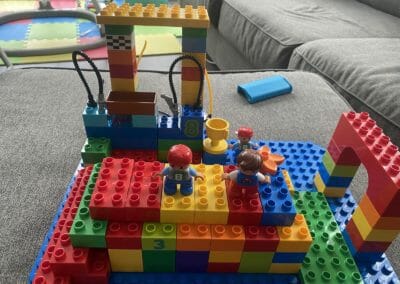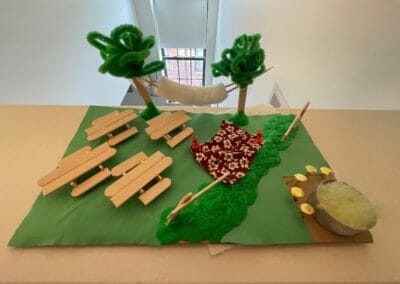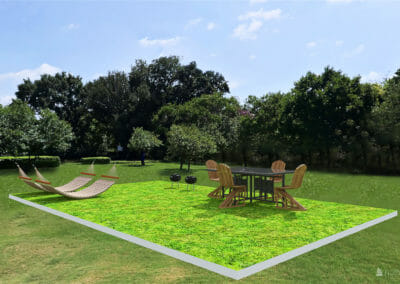Final Student Project
Kick ‘em Out the House
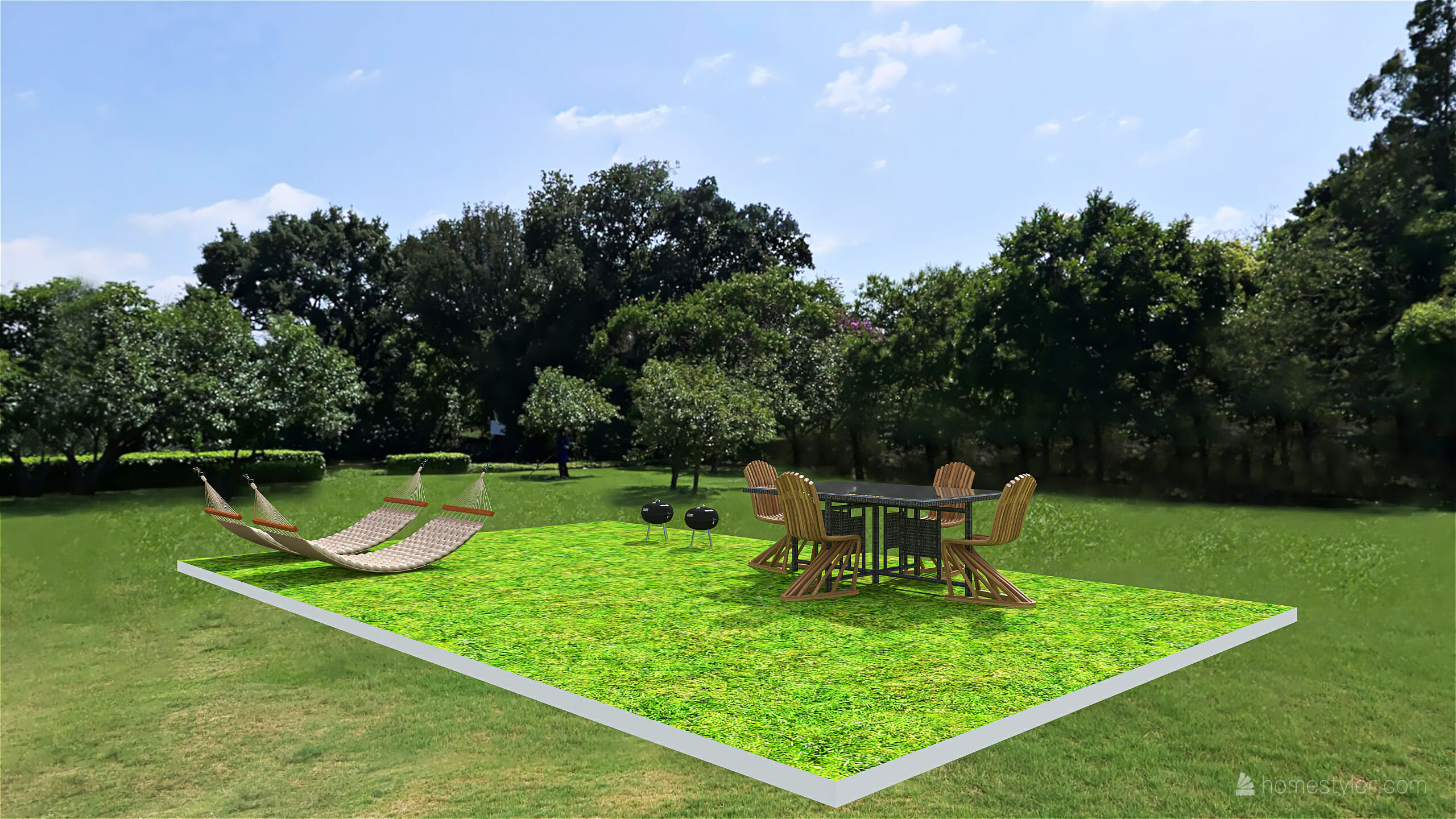
In an effort to make a more inclusive and social community, our group decided on enhancing public parks by having better recreational equipment or scheduled community events to attract community members therefore creating a stronger bond among the community.
TEAM 7
Genesis
Leyah
Khahleal
Lamiya
Farida
Coach
Jacob Degeal
Mentor
Mimi Shalf
ISSUE DEFINITION
What is the issue?
Main Issue: How to get young adults to go outside/ parks
- How to make location accessible for everyone/ accommodate to people’s needs
- How to expand the land
- What can we contribute to this park to make it more appealing to our audience
RESEARCH
Summary
- In our initial research phase, we sent out a survey to community members to gain a better understanding of what type of things they look for in a park as well as the most suitable park environments. Through this stage we were able to gain important information such as correlation between age groups and activities or activities and most desirable weather which would later help us come up with more solid ideas for activities and events.
- We also researched parks around the world to see what worked well in other parks and to see what works and what doesn’t.
- Once we had that information we were able to work on 3D models of designs for the park
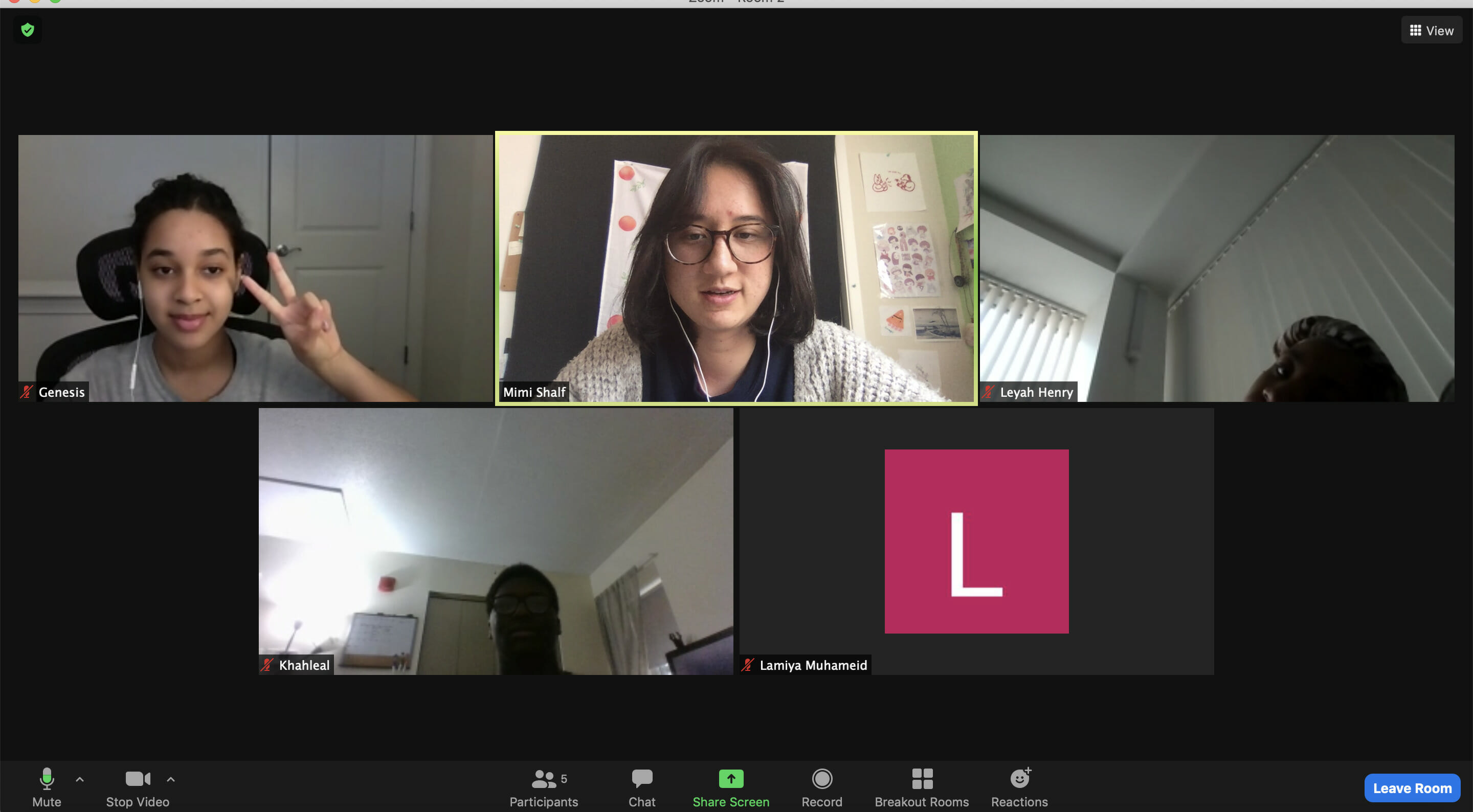
Survey

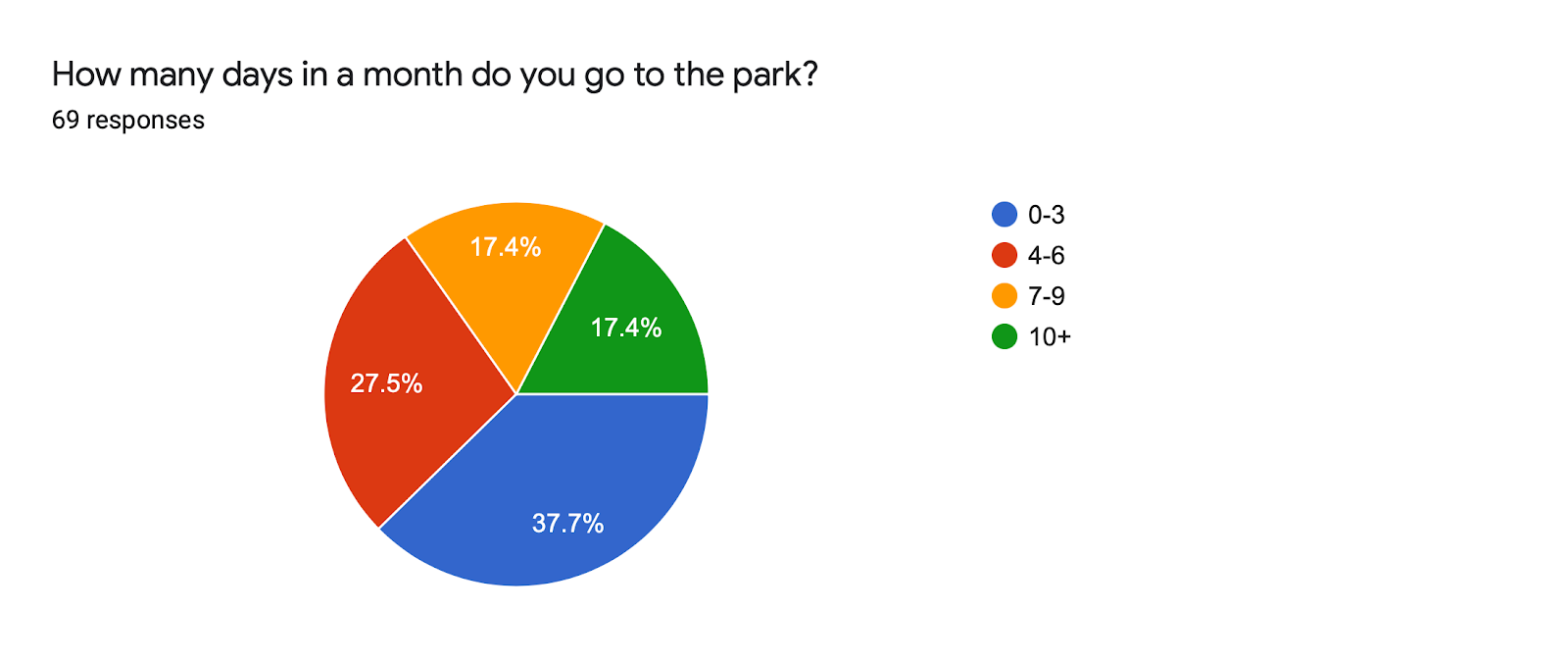
Secondary Research
Chinese parks
- Sidewalk Paintings with Water!
- Tai Chi (but any type of excessive station)
- Game boards station
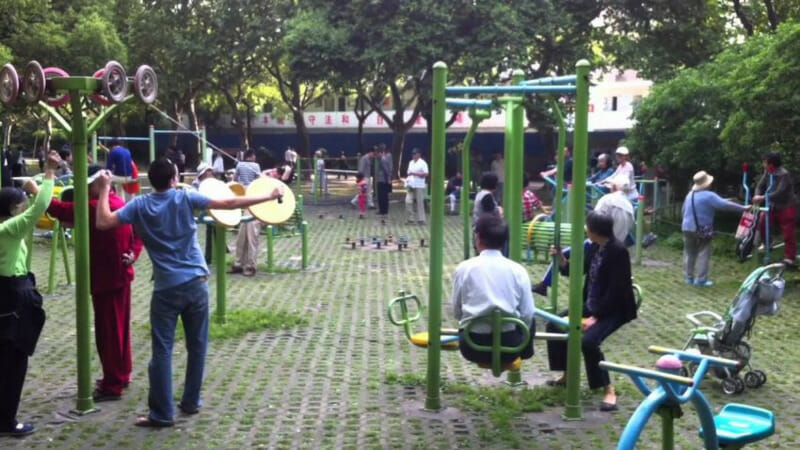
DEFINE
After interviewing an array of people we got some very helpful feedback.
Likes
- Taking pictures
- Having places to hangout
- Cellphones, tv, etc.
- Personal time (aka: no parents included)
Dislikes
- Being bored/ not having anyone to talk to
- Being glued to a screen all day
- Crowded areas
Suggestions
- Starlight square
- More benches and chairs
- More trash cans
- Seating areas with outlets
Testing
What the audience liked
- L’s Video
- Having a Stage for Major performances,
- Being able to incorporate little areas for games and prizes
- G’s Diorama
- There’s a lot more benches!
- Viewers like the idea of different sections for different activities at the park!
How we can improve
- L’s Video
- Try incorporating an exact replica of the park that you would want to use and add onto that replica.
- DON’T START A PARK FROM SCRATCH (it’s time consuming and money)
- G’s Diorama
- There are questions about parking.
- The audience wants more trash cans and possibly a community garden.
- Not having bikers bike through the park to avoid collisions.
Potential Changes
- No riding Bikes
- Food Truck/Small Business Area
- More Accessible Benches
- More green spaces to lounge in
- Sink for the little kids park with supervision
Final Prototype
Our final project is a map of Harvard Yard and how it would look after supplementing our ideas on it.
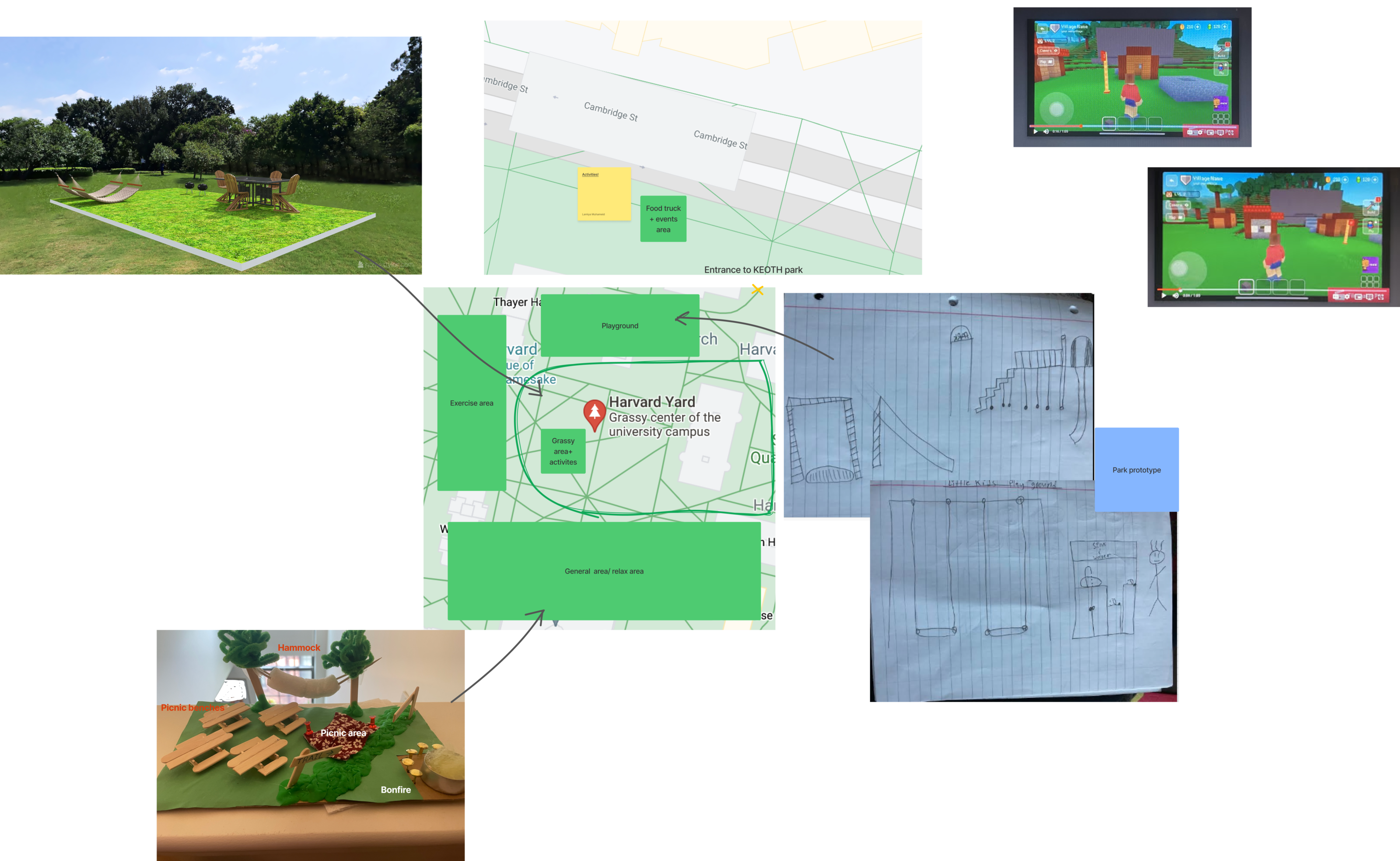
REFLECTION
If we were to do this project again we would spend more time planning out the park’s location because we feel like we could have talked about it a little more.
Something we liked about the project was the general experience of looking for problems in the community and finding solutions to those problems.
What we wish we could do with this project is actually bring this project to the community.
NEXT STEPS
Once NDP is over we wish to make our park a reality by pitching our idea to the City of Cambridge and getting it added as an option for a Participatory Budgeting Survey. We will then use the budget to hopefully get our location of choice. We chose to use Participatory Budgeting because it’s a great way to learn what the community wants.
